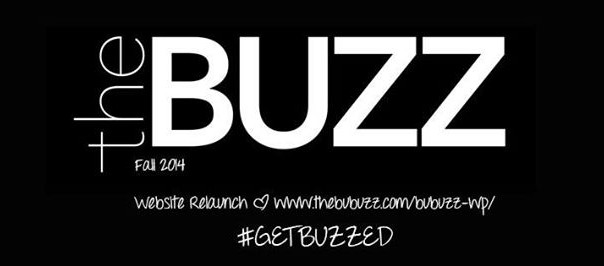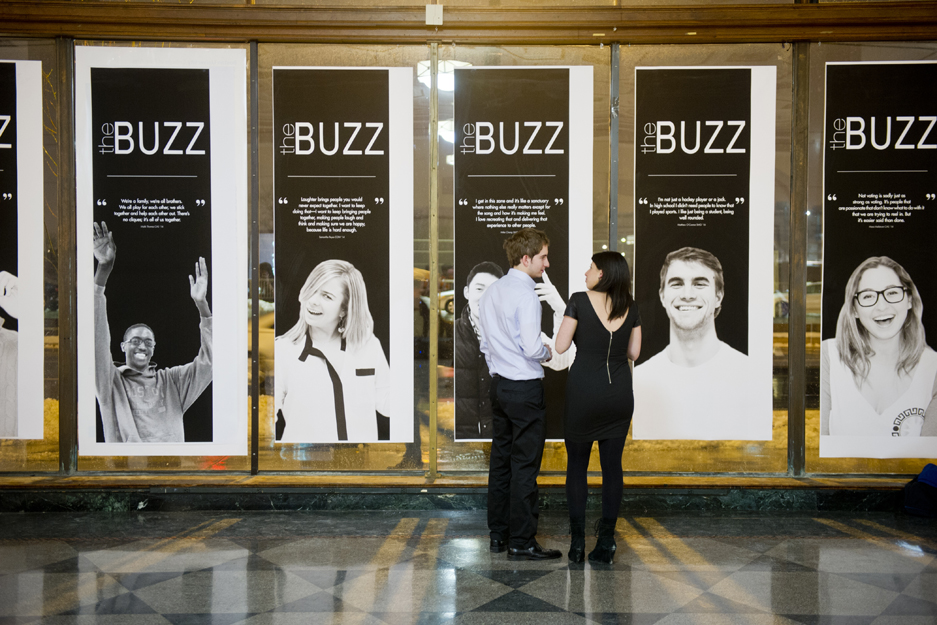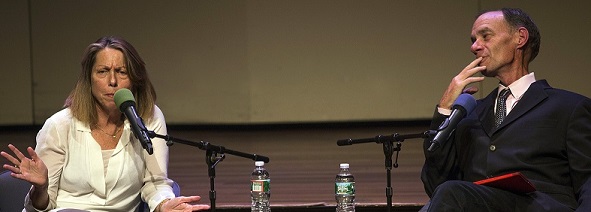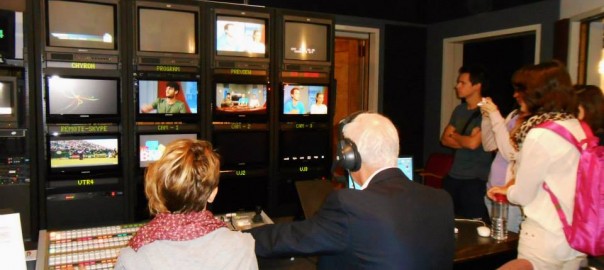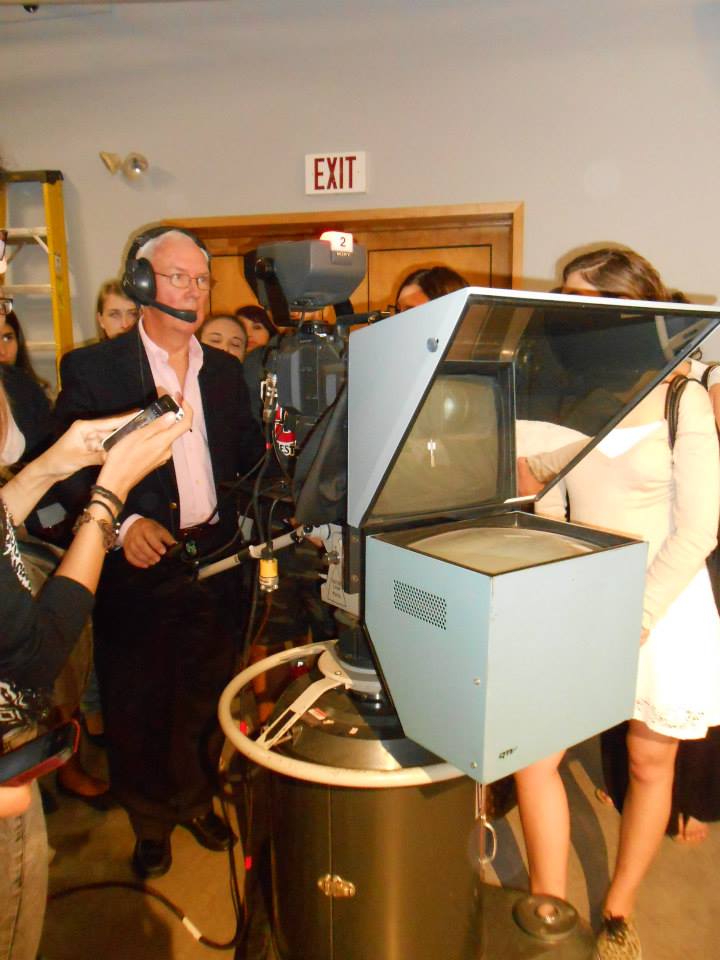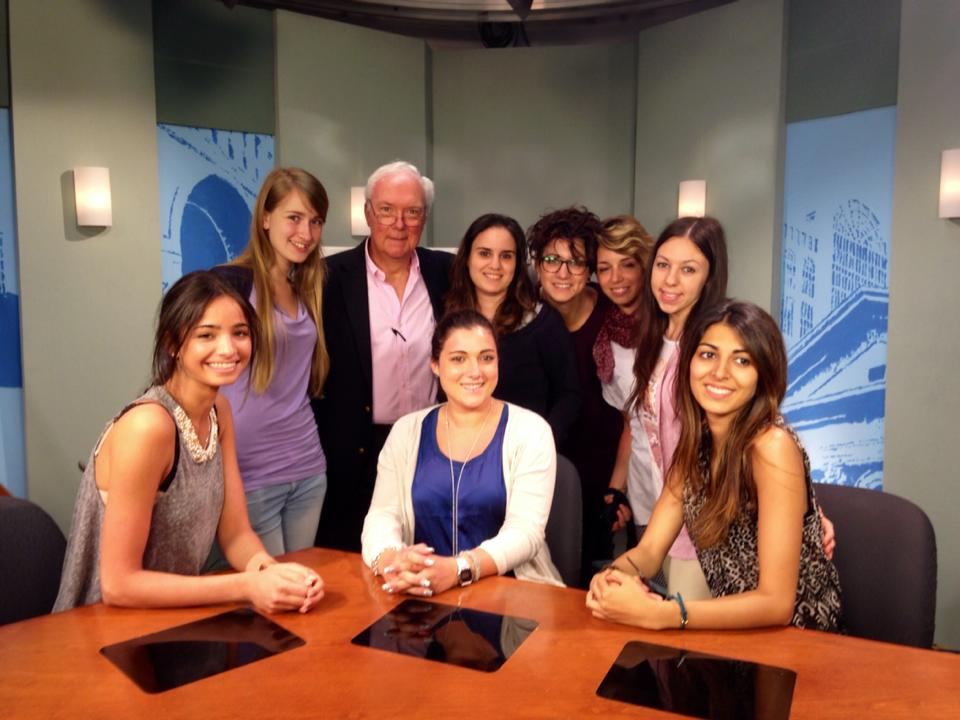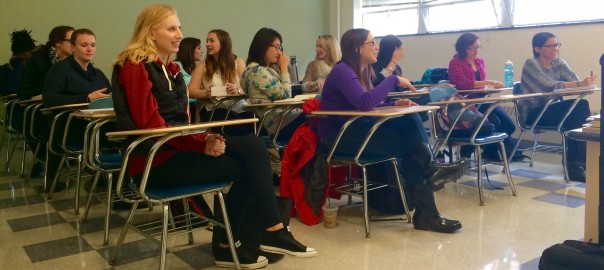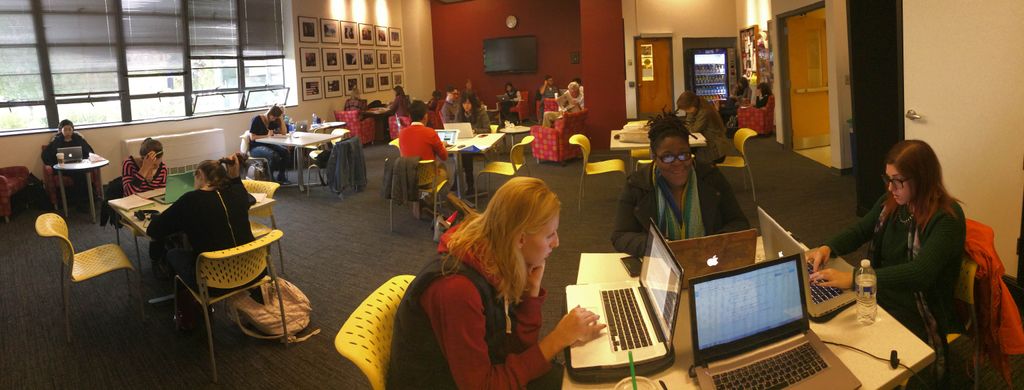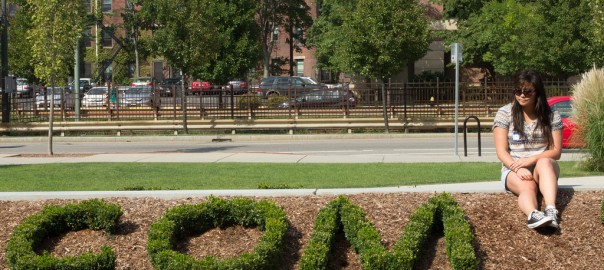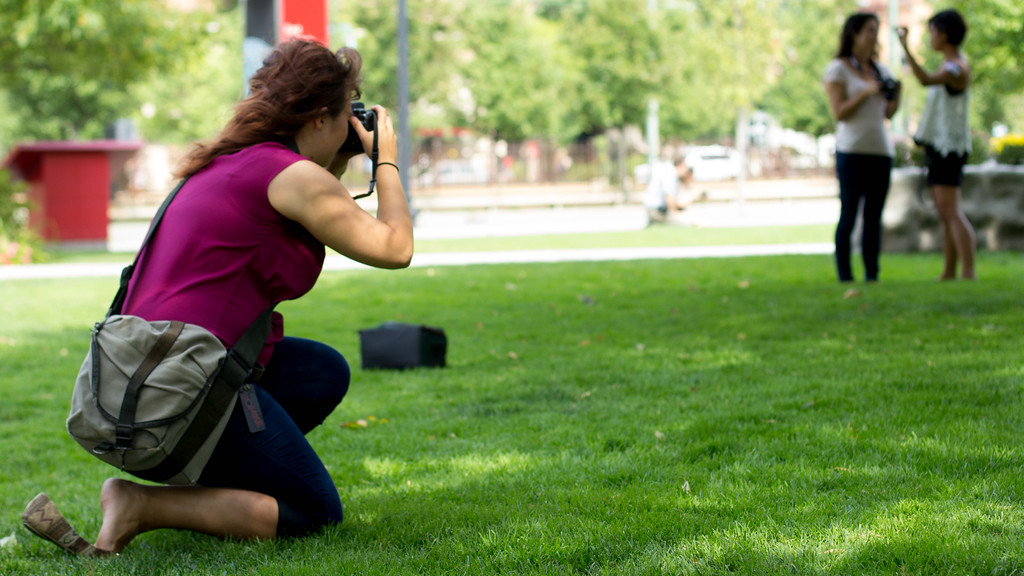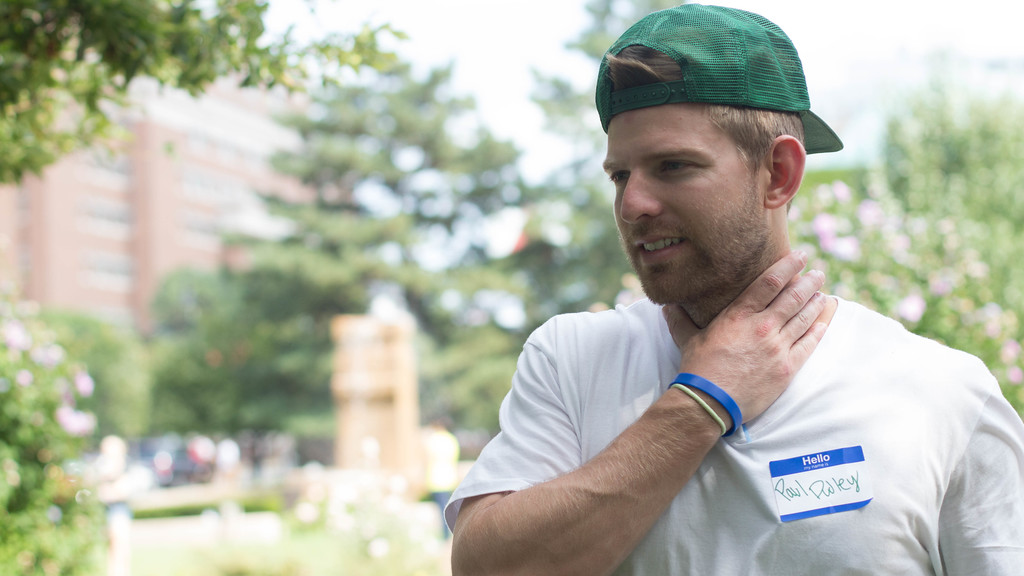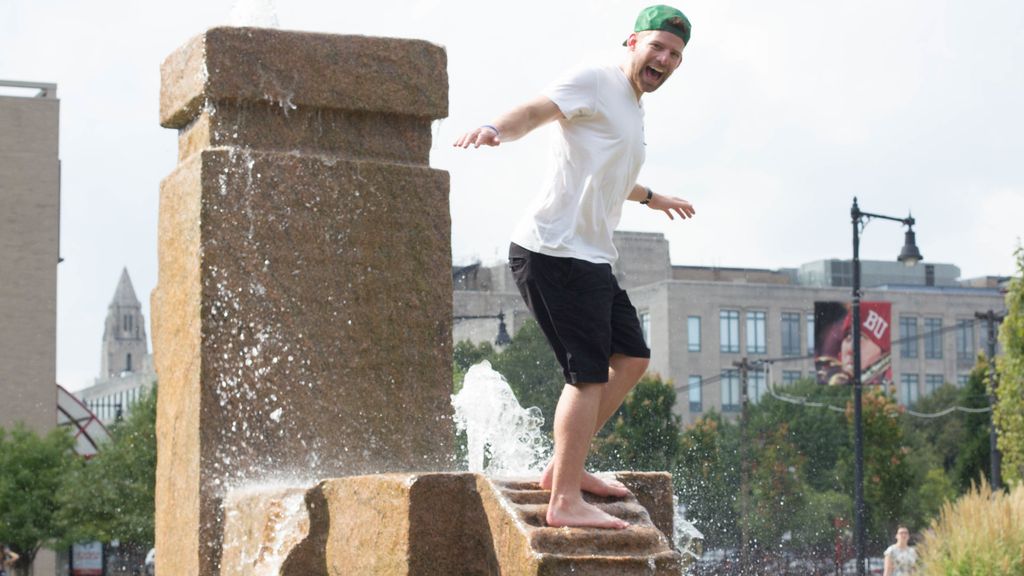By Michelle Marino
MS Journalism ’15
BU College of Communication
This past week, I got out of the grad school bubble and spoke with some very knowledgeable undergrads about their experience working for the The Buzz, Boston University’s lifestyle magazine. The hard-copy magazine is published every fall and spring semester, but their online magazine publishes a variety of content on a weekly basis. The magazine’s sections include a little something for everyone – campus, city, arts, fashion, music, food, sports and travel. The site also features “The Weekly Buzz”, a video component showcasing a range of different lifestyle topics, from BU artists to features on the Assembly Row shops in Somerville.
With a mix of graduate and undergraduate students, The Buzz’s staff is large, ranging from writers to photographers to copy-editing and advertising. Alison Ortiz, a freshman in the process of transitioning over to COM’s Broadcast Journalism program, holds three different positions with the magazine. She is responsible for The Buzz‘s Instagram account, publishing for events and broadcast. Alison says she heard about The Buzz through a campus SPLASH event, where students are exposed to everything from BU’s cultural clubs to dance groups, from academic associations to religious life.
Katie Tamola, a Journalism graduate student, writes for The Buzz‘s campus section. “My experience has been nothing but positive and my editor has been amazing,” says Katie. “As somebody who didn’t go here for undergrad it’s ironic I covered campus. The Buzz has pushed me out of my comfort zone. Sometimes it’s daunting to go up to someone and ask them about their noncommittal sex habits, for example. It’s been so much fun and they’ve given me such great opportunities. I’m so grateful. It helped me be a better writer and gave me the confidence to write for other publications as well.” Katie also commends The Buzz for being hospitable to new ideas, saying, “If you work for campus but want to do something else, they are open to that.”
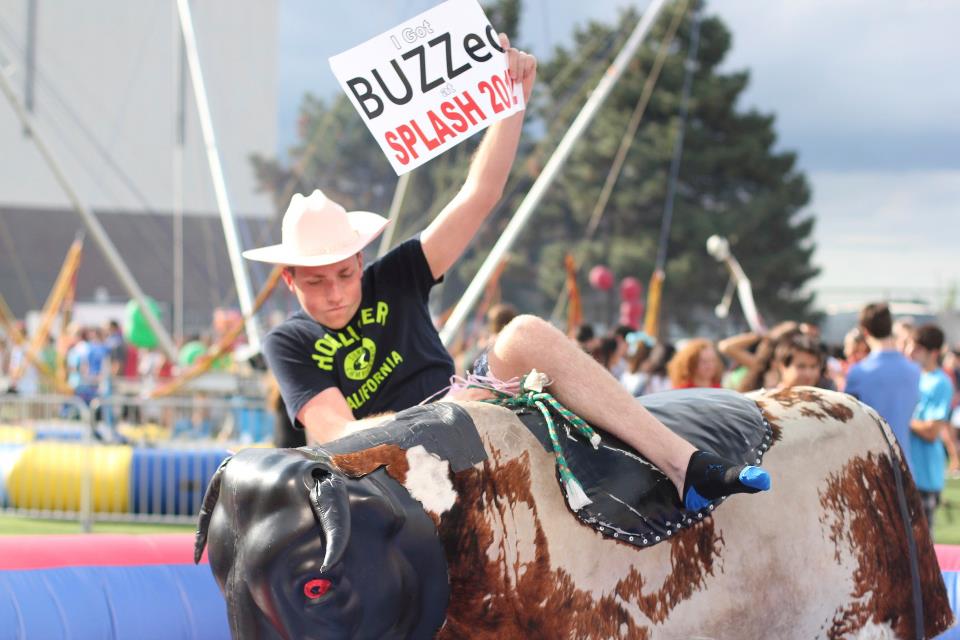
“I’ve made filming and editing my life and got really involved,” says Alison. The magazine can be flexible to your commitment level, however, and doesn’t require you to take on more roles than you can handle. “It’s very relaxed,” she says. “You don’t have to do a million different things, you make it as much as you want it to be. They don’t restrict you or hold you back either.”
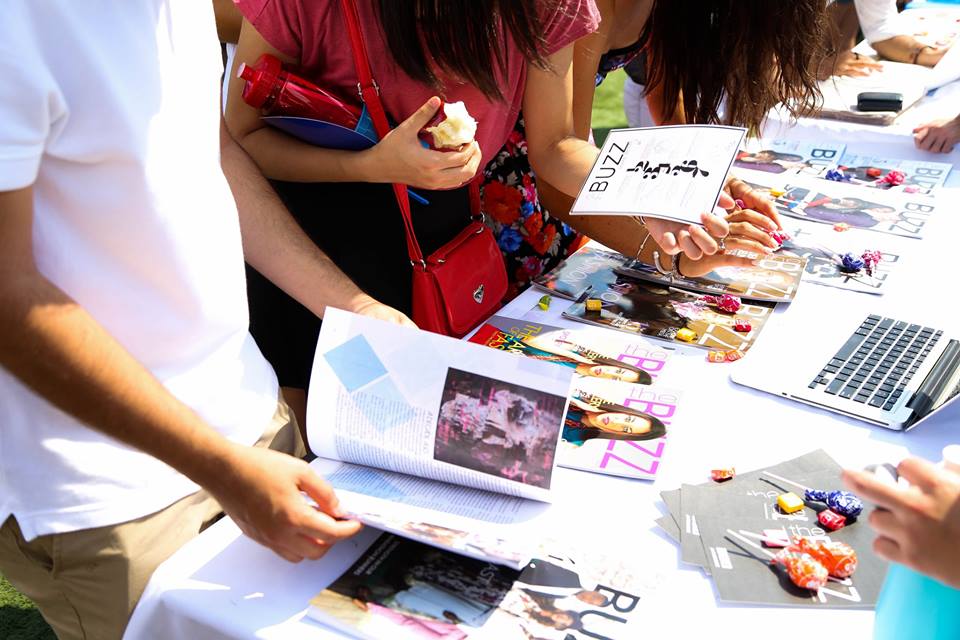
Sarah Wu, a sophomore majoring in Journalism at BU, writes for three sections of The Buzz – campus, fashion and food. She also heard about the magazine at a SPLASH event and began attending meetings, initially starting with food and then taking on other sections. Sarah says for her, the process has been a lot of deadline juggling depending on which section is going to be published online, or what piece she is working on for the print magazine.
“It depends where we are in the cycle,” she says. “There have been times when I’m writing one article for each section. For campus, I write one monthly, for events, if something comes up like fashion, they ask can you go cover this, and for food it’s generally dining hall stuff or campus food trucks.” When asked about what she’s learned from working with The Buzz, Sarah cites time management and the opportunity to improve her writing skills. “You’ve got to learn to be on your toes,” she says. “Since I’m writing for three sections I always have deadlines and you learn to manage your time.” “The more you write the better you get,” she adds. “Being able to receive feedback from the editor is very constructive.”
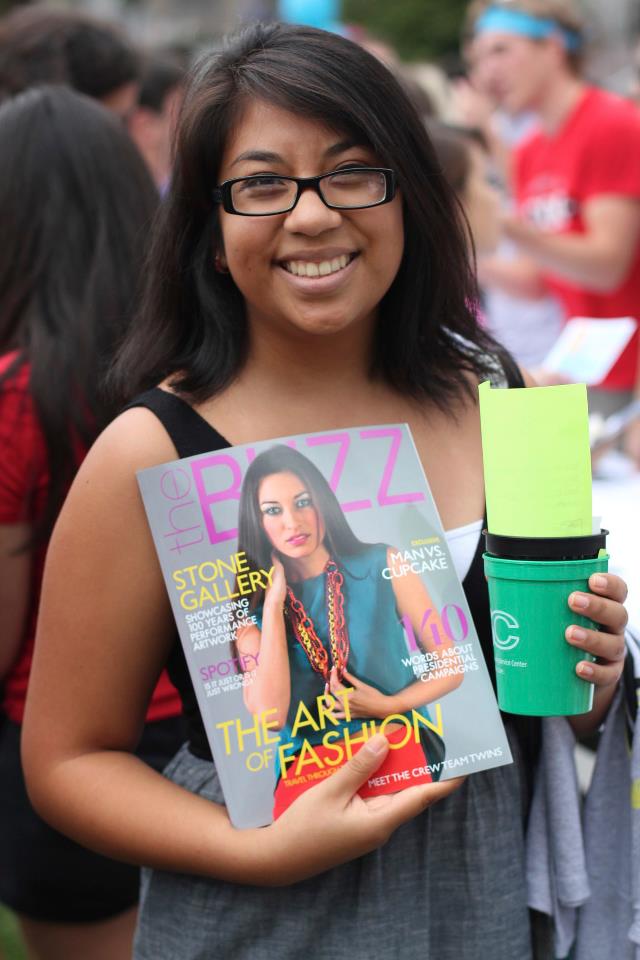 Gianna Fischer, a sophomore PR student, manages all of The Buzz’s social media. While she writes for other organizations on campus, she wanted to focus on the business side of things as well, saying publishing is an industry often misunderstood in terms of its business orientation. “So far it’s been a really good experience and a lot more organized than other organizations I’ve worked with in the past.” Social media falls outside of The Buzz’s three main publishing components, to include publisher, events and PR/advertising. Events primarily work on the fall and spring release parties, advertising and PR build the brands and funds for print, while social media cultivates the magazine’s online presence.
Gianna Fischer, a sophomore PR student, manages all of The Buzz’s social media. While she writes for other organizations on campus, she wanted to focus on the business side of things as well, saying publishing is an industry often misunderstood in terms of its business orientation. “So far it’s been a really good experience and a lot more organized than other organizations I’ve worked with in the past.” Social media falls outside of The Buzz’s three main publishing components, to include publisher, events and PR/advertising. Events primarily work on the fall and spring release parties, advertising and PR build the brands and funds for print, while social media cultivates the magazine’s online presence.
“The Buzz’s publishing group is really structured and keeps people directed,” says Gianna. “It’s great to be a part of something with clear cut goals and to see strong leadership.” On working the social media side of things, she comments, “It’s a real world application that I wouldn’t have at the professional level otherwise. We’re talking to actual clients. COM is great because they have AdLab and PRLab, but being able to do that before you get into those classes is nice,” she says.
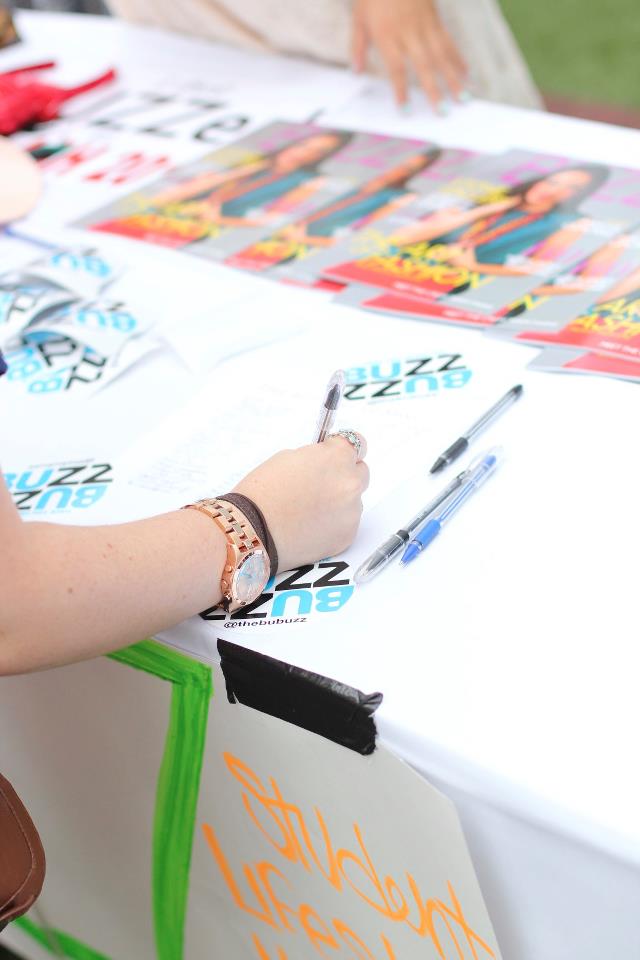 I asked all three undergrads what they thought of grad student involvement at The Buzz, and they all enthusiastically supported it. “The Buzz is the type of organization that likes to push limits and be the best. Grad students would put us a step above,” says Gianna. “At the start of the semester we have an all staff meeting the first month. They tell you what The Buzz is about, give you contact information and you talk to editors. If you want to join now you can talk to a particular section. They’re very open to having new writers,” says Sarah.
I asked all three undergrads what they thought of grad student involvement at The Buzz, and they all enthusiastically supported it. “The Buzz is the type of organization that likes to push limits and be the best. Grad students would put us a step above,” says Gianna. “At the start of the semester we have an all staff meeting the first month. They tell you what The Buzz is about, give you contact information and you talk to editors. If you want to join now you can talk to a particular section. They’re very open to having new writers,” says Sarah.
On Nov. 18, The Buzz Fall 2014 print issue will launch, and copies will be available at the George Sherman Union on campus. There is also a launch party called “Refined 2014” on Nov. 20 in the Burke Club Room at the Agganis Arena. The party is intended to promote the issue while also showcasing student talent that may have been featured in either the print or online edition. Refreshments, raffles, music and more will be provided.
If you are interested in joining The Buzz, you can email Ashli and Meredith (Editors-in-Chief) at the.bu.buzz@gmail.com, or contact a specific section (emails below). Have you written for The Buzz? Tell us what your experience was like.
Editorial:
Campus: campus.bu.buzz@gmail.com
City: city.bu.buzz@gmail.com
Arts & Entertainment: culture.bu.buzz@gmail.com
Music: music.bu.buzz@gmail.com
Fashion: fashion.bu.buzz@gmail.com
Food: food.bu.buzz@gmail.com
Travel: travel.bu.buzz@gmail.com
Sports: sports.bu.buzz@gmail.com
Publishing: publish.bu.buzz@gmail.com
Photography Director: photo.bu.buzz@gmail.com
Arts: Illustrators and Graphic Designers: art.bu.buzz@gmail.com
Broadcast: broadcast.bu.buzz@gmail.com
If you want to learn more about what graduate programs here at Boston University’s College of Communication have to offer, please ask any questions below and visit our website.
